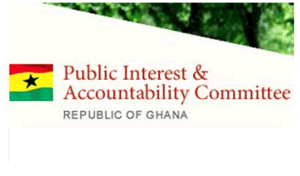PIAC engages stakeholders in Takoradi
 Stakeholders at a Petroleum Revenue Management dialogue have called for strong citizen engagement and involvement on how oil funds allocated to the Annual Budget Funding Account (ABFA) are utilised to ensure transparency and value for money.
Stakeholders at a Petroleum Revenue Management dialogue have called for strong citizen engagement and involvement on how oil funds allocated to the Annual Budget Funding Account (ABFA) are utilised to ensure transparency and value for money.
Such effective involvement, they said, would also ensure that projects were tailored to the needs and aspirations of the people in the communities.
The stakeholders call followed a presentation by Alhaji Ahmad S. Anderson, a member of the Public Interest and Accountability Committee (PIAC), on the “Management and Utilization of Petroleum Revenue in Ghana,” at a workshop in Takoradi.
The programme was organized by Friends of the Nations (FON) with support from OXFAM.
The participants, including Mr Eric Adjei, a social worker, also called for full implementation of the recommendations of the PIAC Act by Parliament.
That, they said, would strengthen accountability and good feedback on the use of the oil money.
Alhaji Mohammed Abu, the District Planning Officer of the Shama District Assembly (SDA), said PIAC should enforce its recommendations in accordance with its mandate.
“Your recommendations must be enforceable. PIAC should be able to bite without fear or favour. It needs the teeth to bite anyone because the Act gives it the powers.”
Alhaji Abu also suggested that the Heritage Fund should be used to fund some of the legacy projects, saying that “else if we leave it, one day, someone will come and use it.”
Mr Emmanuel Nana Yartel, the Budget Analyst at SDA, on his part, suggested capacity-building programmes for members of PIAC so they could effectively play their accountability role, ensuring value for money for the citizens.
Other discussants said with the surge in oil prices, which presently stood at $100 per barrel, PIAC should be able to recommend to the Government to use the windfall to cushion Ghanaians from the hardship they faced now.
Meanwhile, Dr Emmanuel Yamoah Tenkorang, a member of PIAC, said the Committee would continue with advocacy through its recommendations for accountability in Petroleum Revenue Management.
Source: GNA
